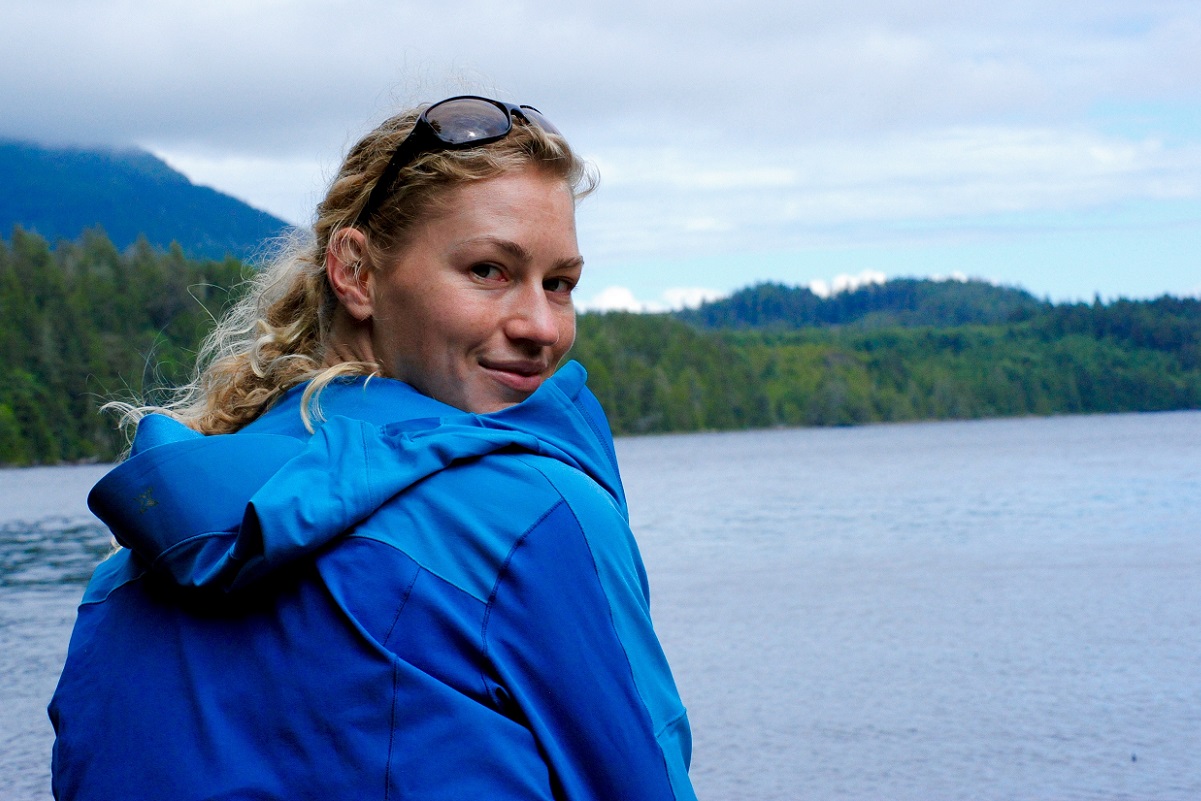
Originally from Germany, Dr Katharina Peters has built an exciting Australian research career in animal behaviour and ecology, evolved from her life-long love for whales and dolphins.
What made you decide to work in the research field?
When I was a kid I wanted to become a marine biologist and study whales and dolphins. Of course at that time I had no idea what this actually meant, but I was so crazy about cetaceans that for me, this was the only option.
After school I started studying veterinary medicine, but I quickly realised that this was not my path. I stopped after a few months and decided to get a degree in biology instead, majoring in marine biology, animal behaviour and experimental ecology. Afterwards I moved to Australia to do my honours at the CEBEL lab at Flinders and (finally) study the behaviour of dolphins.
For my PhD I chose to work with the BirdLab at Flinders, studying hybridisation in Darwin’s finches on the Galapagos. I seem to be going back and forth between marine and terrestrial ecology, and I really enjoy using these different systems. Marine mammals will always be my passion, but other systems offer different options for research, and it’s really cool to explore them too.
What is your current research about?
Right now I am a postdoctoral researcher with the Global Ecology Lab at Flinders where I use ecological modelling and the fossil record to investigate extinction dynamics of vertebrates. This is new territory for me, and I’m learning cool and useful things every day.
I am also still working on a project with the Coastal-Marine Research Group at Massey University, New Zealand, where I did a postdoc last year. This one is about using stable isotopes to investigate foraging ecology of toothed whales.
How will your work benefit the wider community?
Studying extinction dynamics can shed light on past processes and help better understand ecological systems. This can help us predict how species and ecosystems will behave and react to changes in the future.
With my stable isotope research, I am looking at the foraging ecology of different species of dolphins to assess their overlap with fisheries. This will inform species and fisheries management to minimise fisheries interactions and bycatch (fish or other marine species caught unintentionally) which is a big issue, especially for common dolphins in New Zealand.
What has been your proudest moment as a researcher?
One of the proudest moments so far was when I received the news that I had been awarded an Endeavour Research Fellowship from the Australian Government to do a postdoc in New Zealand. At this stage I had received several rejections and it was so reassuring to get some recognition for my efforts, and the opportunity to go to Massey University and do a really interesting project with great people.
What has been your most challenging moment as a researcher?
So far, the most challenging time as a researcher for me was during my last field season of my PhD. We had several logistical issues on Galapagos, and due to very hot weather the birds I was studying stopped breeding and I was worried I would not be able to collect enough data for my PhD. I also had a great group of international volunteers that were eager to do fieldwork, and suddenly there was almost nothing for them to do. It wasn’t a particularly easy time, but luckily it all worked out in the end.
What does a normal day look like for you?
At the moment my work is very desk-based. Lots of writing code and manuscripts, running analyses, reading papers and discussing our research with the rest of the team. To balance this, I usually do at least an hour of exercise before work so I don’t go too crazy being stationary for the rest of the day.
Last year my days were sometimes quite different and I would spend many hours in the lab dissecting dolphins, sampling tissues and preparing the samples for analyses.
If there is one piece of advice you could impart on future researchers and university students, what would it be?
Think about what sort of job you want to do and acquire the skills for this outside of university, don’t rely on a degree to equip you for working life. Volunteer with other researchers to gain practical experience. If you want to do research, publish as early as you can.

